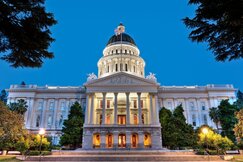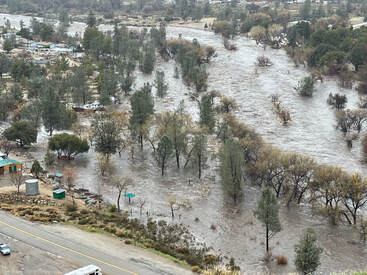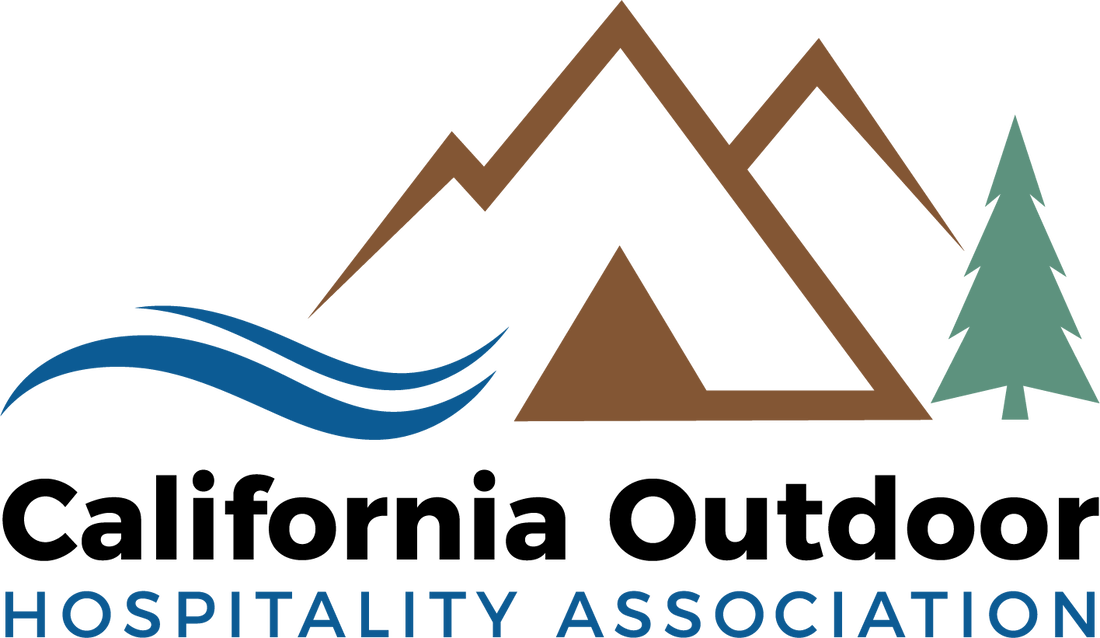 With the technology of today progressively improving and becoming more and more codependent, cybersecurity is more important than ever in not only protecting yourself, but your business as well. Whether you operate a small, limited space park or one with hundreds of sites, it is important to protect your business from a cybersecurity attack that could ultimately lead to stolen digital property. Especially in the camping industry, these attacks are more likely to transpire with small, unprotected businesses. The first step to defending yourself is understanding the digital assets you possess as well as the risks they impose. Assets that might interest cybercriminals include guest information, business records, Wi-Fi networks, and social media. Guest information is all personal information pertaining to the guests in your park, like names, addresses, and, most importantly, credit card numbers. Your business data can be anything from payroll data to your credit card information. Your internet connection may also pose a threat, giving access through routers and switches. Finally, your social media presence, like your profiles and email accounts can provide access points as well. A risk assessment can help you determine the best way to safeguard your information to keep from a cyberattack. Once you have assessed your risks, it is important to take action. Not only should you develop a strategy and ensure that every aspect of your business is sound, you also need to make sure your Wi-Fi network (if you have one) is secure and free of weaknesses. Protecting your IT systems, like your reservation system, as well as training your staff in recognizing threats such as scam/phishing emails are both key in protecting yourself as well. At the end of the day, technology is a great thing, but it can be dangerous, too. Defending your business from cyberattacks is an important step in your everyday practices to ensure that you are able to keep everyone in your park safe. Check out Woodall’s Campground Magazine for a comprehensive guide to cybersecurity written by Patrick Chown!
0 Comments
 Trust us, we know how many posts and newsletters we release each week, but you may be wondering why you, as a park owner/operator, may be receiving consumer-based news as well. The short answer is we want you to be aware of what we are putting out into the public’s eye view. Whether you are our featured park for the week or even if we repost your content, you need to know what consumers are seeing about your business, even if it’s just for the benefit of assuring we are distributing the correct information about your park. The biggest problem we are currently facing is our members unsubscribing from Around the Campfire because it is consumer-based, which, in turn, unsubscribes them from our industry-based newsletters as well. Obviously, it is important for you to know what is happening in the industry, so why isn’t it just as important to know what consumers are seeing as well? We understand that keeping up with the latest trends and fads can be exhausting, but it can actually help your business in the long run. By keeping updated with our camper facing posts, you can see things you might need to change or update about your park to help accommodate and attract customers better! Viewing social media posts also allows you to see what consumers are saying about what we post and their personal views on crazes and even issues in the camping world. All in all, our consumer-based publications and posts connect campers directly to our members' parks. By following what they see and react to, you are able to provide a more positive experience to the camping consumer!  AB 22 – Assemblyman Gipson (LA County) Aimed to amend section 396 of the Vehicle Code relating to “mobile coaches” by enacting legislation that would classify motor coaches that are parked in a mobile home park for a period of time that satisfies residency requirements (9 months) as mobile home properties to give mobile coach owners the ability to build home equity. Additionally, current law defines “mobile home” for the purposes of the enforcement of highway safety laws and regulations as a trailer coach which is in excess of 102 inches in width or in excess of 40 feet in overall length measured from the foremost point of the trailer hitch to the rear extremity of the trailer. This bill would increase the width in the above-specified definition from 102 inches to 110 inches. Thanks to the hard work of Chris Wysocki of the WMA the first part of the bill regarding equity has been stricken and only the size requirements will be moving forward. AB 1472 – Assemblyman Alvarez (San Diego) Another bill with two parts is set to amend the RV Park Occupancy Law in Imperial Beach but the author is looking to expand to a statewide ordinance. Part one would mimic the rent restrictions of a mobile home park by limiting rental increase to 3% plus CPI not to exceed 5% and limiting it to 2 increments over a 12 month period. Part two would prohibit the practice of limiting a tenant to a period of time under 9 months to prevent residency. Any park that would require a tenant to leave and re-register would be subject to fines and legal action that would award attorney’s fees to the prevailing party. A governing body may establish inspection, reporting, recordkeeping to ensure compliance. I have been in touch with Assm Alvarez’s staff and waiting for a meeting. The Assemblyman is very approachable and willing to work with us on this legislation. This could be extremely detrimental to RV parks with extended stay offerings. More to come. SB 620 - Senator McGuire This bill would provide a pathway for low impact camping in rural areas, AG land, and private property. The Special Occupancy Parks Act, establishes requirements for the construction, maintenance, occupancy, use, and design of RV parks and campgrounds. Existing law defines “special occupa ncy park” to mean a recreational vehicle park, temporary recreational vehicle park, incidental camping area, or tent camp. This bill would specify that, for the purposes of that act, a special occupancy park does not include a low-impact camping area. The bill would define a “low-impact camping area” to mean any area of private property that provides for the transient occupancy rental of a shelter, recreational vehicle, or other temporary sleeping accommodation, as defined, for recreational purposes that is not a commercial lodging facility and meets specified requirements such as less than 9 sites. More to come.  While most campgrounds are preparing for their grand openings of the season, many of them here in California are wondering if campers will be able to reach their sites at all. With the onslaught of rain and snow this year, Kernville, CA is faring worse than most. Not only are all access points to the valley susceptible to flooding, several major highways and roads are currently closed for what looks like months. On April 4th, several campgrounds in Kernville were able to voice updates on recent flood damage to Congressman Kevin McCarthy and his deputy chief of staff, Kyle Lombardi. The Congressman brainstormed various ideas on how to draw in consumers, such as social media publications. While many campgrounds have been able to get back up and running despite the overwhelming amount of water, they must still monitor fluctuating river levels frequently for the next great threat: eroded roadways. The largest struggle for these sites at the moment is state assistance programs. Kyle Lombardi discussed mitigation programs such as FEMA, but further research shows this plan of action assists individuals and families who have lost their homes, not businesses. While you’d think that flood and property insurances would provide assistance, Rhonda Stallone of Kern River’s Edge Campground has shed light that her flood insurance only covers buildings, not real estate, and her property insurance has a flood exclusion policy. As of now, this is where the situation has landed. Legislators are continuously working to assist and procure aid for the many campgrounds in need of assistance. We will continue to monitor the situation and provide updates as they become available. |
Check out more blog posts!
Categories
All
Archives
June 2024
|
|
2023 Copyright California Outdoor Hospitality Association. All Rights Reserved.
319 Nevada Street | Auburn, CA 95603 Phone: (530) 885-1624 | [email protected] | sitemap |

